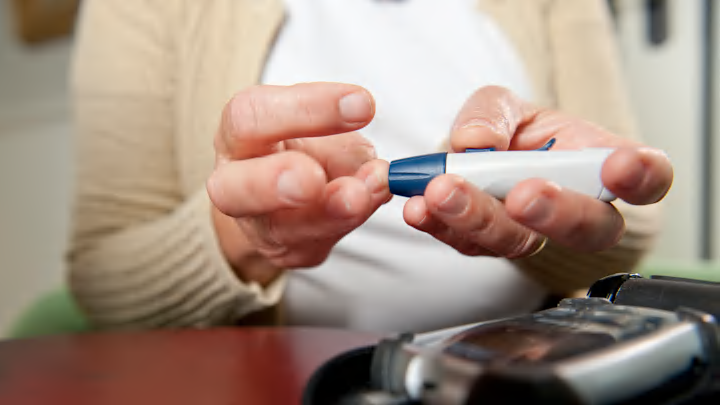Researchers are still investigating the long-term implications of coronavirus infections. Many have seen patients with persistent fatigue, blood clots, and other ailments after the infection has resolved.
Now, a large new study shows that the risk of developing type 2 diabetes can be as much as 40 percent higher among those who have recovered from COVID-19 compared to those who were never infected.
The study, published in The Lancet Diabetes & Endocrinology, looked at roughly 180,000 people in the Veterans Affairs St. Louis Healthcare System in Missouri diagnosed with COVID-19 between March 2020 and September 2021 and who survived for longer than one month. Their health records were compared against two control groups of approximately 4 million people each who were never diagnosed with COVID-19. None of the subjects had any recorded history of diabetes.
The study found that those positive for COVID had a 40 percent greater risk of being diagnosed with type 2 diabetes within one year than the non-COVID patients in the two control groups. For every 1000 people in each group, that meant 13 more developed diabetes in the COVID group. The risk increased if the COVID patient was hospitalized for the infection.
Coronavirus can attack insulin-producing cells in the pancreas, leading to low insulin sensitivity that can adversely affect how the body uses energy. Roughly 37 million Americans have some form of diabetes, most with type 2, in which the body becomes resistant to insulin. In type 1 diabetes, the body makes very little or no insulin.
The heightened risk of diabetes among recovered COVID-19 patients may be compounded by preexisting health issues. Gideon Meyerowitz-Katz, an epidemiologist at the University of Wollongong in Australia, told Nature that the subjects in the Veterans Affairs healthcare system skewed older and were also prone to high blood pressure and weight issues, meaning that younger, healthier populations may not experience the same increase in risk.
Additionally, some in the control group may have had asymptomatic, undiagnosed COVID-19, which would also confound results.
Previous studies into the relationship between diabetes and COVID-19 indicated that some patients may have only a temporary rise in blood sugar levels. The new study, which looked at patients for up to one year following diagnosis, indicates that the risk may persist after patients feel better.
[h/t Nature]
